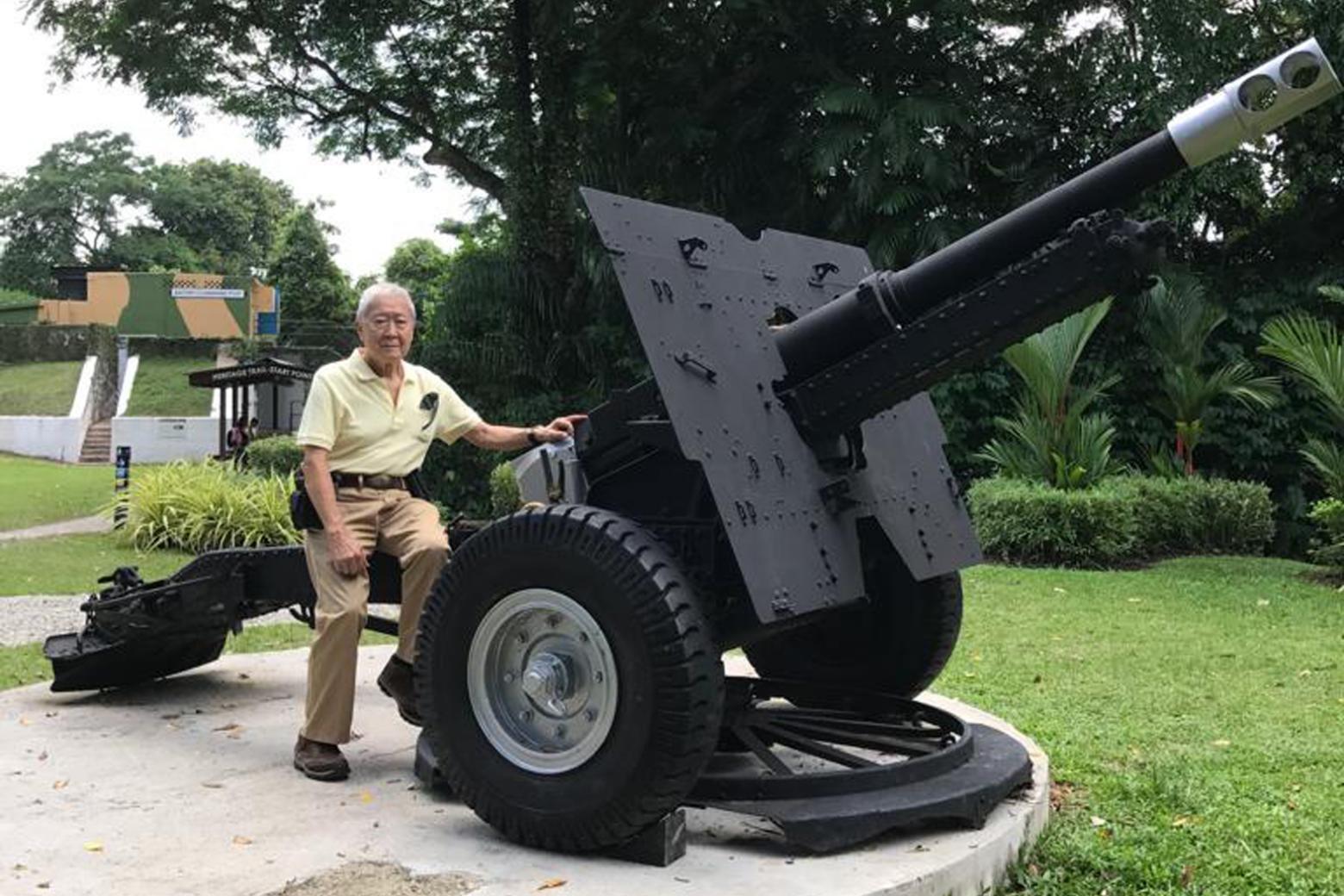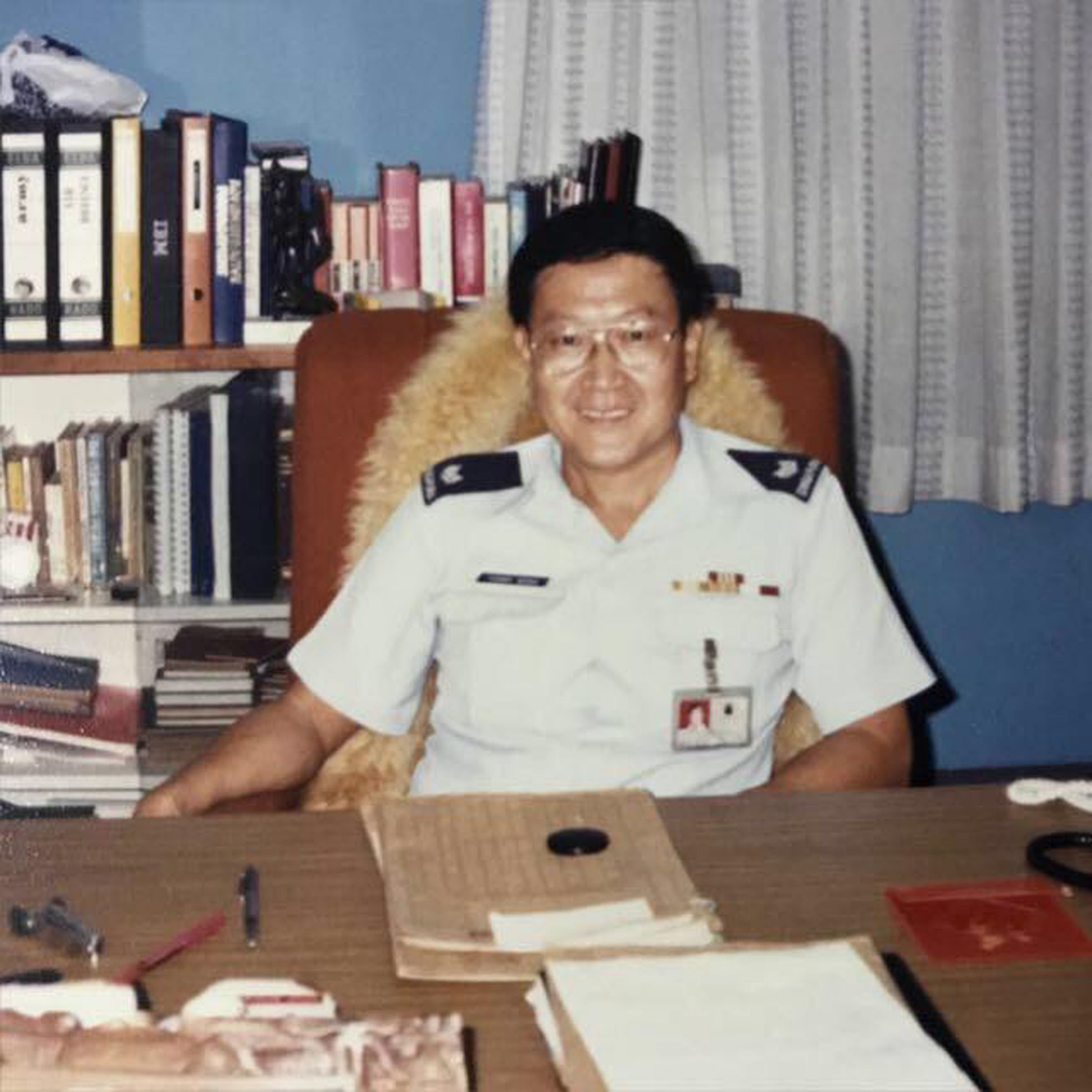Trauma of World War II led to a life dedicated to defence of family and country
Sign up now: Get tips on how to help your child succeed

Mr Tommy Wong served in the Singapore Armed Forces for 25 years before retiring in 1984 as a major.
PHOTO: COURTESY OF TOMMY WONG
SINGAPORE - When Mr Tommy Wong's father was released after being jailed by the Japanese for two years during World War II, Mr Wong, who was four years old then, could not recognise him.
His father, who had been caught distributing flyers to resist the Occupation, had been tortured behind bars in Pudu Prison in Kuala Lumpur.
Mr Wong, now 83, told The Sunday Times: "When my family went to get him when he was finally released, I stood there and I said, this is not my father - he had lost so much weight. He was haggard, just skin and bones.
"Later as a teenager, I realised how sad it was. My father was a broken man.
"He was not himself and never recovered."
Mr Wong said his father, who died in his 70s, became a nervous wreck who would shiver at the sight of postmen because he thought they were Japanese soldiers even long after the war had ended.
This and the violence he saw during the fall of Malaysia and Singapore to Japanese forces traumatised Mr Wong deeply, and eventually led him to a life dedicated to the defence of his country and family, he said.
He first joined the Singapore Volunteer Corp in 1964 and then the regular service after the formation of the Singapore Armed Forces in 1965, where he served for 25 years before retiring in 1984 as a major.
Mr Wong was born in Kuala Lumpur and was about three years old when the city - then the capital of the Federated Malay States under British rule - fell to the Japanese on Jan 11, 1942.
Singapore - a British stronghold at the time - later fell on Feb 15, 1942.
His family began the years under Japanese Occupation eking out a living while squatting in the jungles near Sungei Bisa in Selangor where they hid from the Japanese.
He said: "We were hiding there for a while but then we later moved to the town to avoid harassment by bands of Japanese soldiers who would come in the night."

However, life in Kuala Lumpur was worse.
Mr Wong said: "We lived in constant fear, and despite my young age, I had to witness real atrocities like the severed heads the Japanese soldiers displayed on the sides of roads to warn people."
Life was hard, he said, and food was scarce.
He said: "We were eventually issued ration cards - which sounds like a good thing - but that meant having to queue for a very long time and sometimes, when we got it, the food was rotten."
There were frequent disruptions to daily life and people were often woken up in the middle of the night and lined up in the streets and left to stand in the open until sunrise, several times a week.
Young children were not spared, although Mr Wong remembers the kindness of some junior soldiers.
He said: "Some soldiers would see us and offer us sweets or drinks, but if caught, they would be punished by their superiors."
Mr Wong's parents took care to keep the children safe.
His four sisters - two elder ones had already left the family home - stayed in a false ceiling in a shophouse to hide from Japanese soldiers most of the day to avoid being harassed.
Mr Wong's parents dressed him up as a little girl after the family heard a rumour that the soldiers were kidnapping young boys.
His long hair was tied in a ponytail and he wore a girl's samfu (traditional clothing worn by Chinese women at the time).
His entire family survived the Occupation but Mr Wong said life did not immediately improve after the Japanese surrendered and left in September 1945.
He said: "Life was actually worse after the allied forces came back. My sisters were too old to go to school and food and jobs were scarce."
Witnessing the trauma his father suffered made Mr Wong "obsessed" with the idea of becoming disciplined and strong enough to defend his family as an adult.
He said: "I saw how disciplined the Japanese soldiers were and how willing they were to endure hardship, and I wanted very badly to acquire that."
Mr Wong moved to Singapore for work after finishing his Senior Cambridge qualifications - the precursor to the current A levels.
He eventually joined the military in 1964.
He would go on to be deployed in Malaysia during Konfrantasi, the conflict between Indonesia and the newly formed Malaya between 1963 and 1966.
His military career and commitment to national defence were the direct result of his experiences in the war, he said.
"The war left a trail of misery for me and I told myself: I shall not let this befall my loved ones ever again.
"Even though I have forgiven the Japanese, what happened will never be forgotten."


